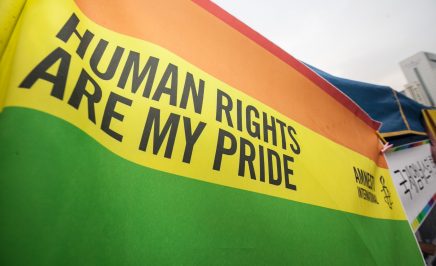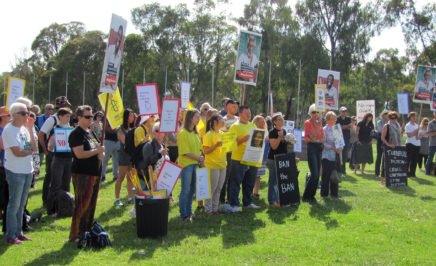The Australian government must immediately scrap proposed new laws that, if passed, would suffocate the work of civil society, intimidate whistleblowers and limit scrutiny of government, Amnesty International said.
The bills – the Electoral Funding and Disclosure Reform Bill and the National Security Legislation Amendment (Espionage and Foreign Interference) Bill – are currently being reviewed by Parliamentary Committees, the first of which is due to report back this Wednesday.
“These bills are clear examples of government overreach in the name of national security, which could silence critical voices. It appears that authorities are attempting to prevent organizations from working on issues they consider ‘sensitive’, such as the shutting down of offshore refugee processing centres. These bills would help to hide government dealings from public scrutiny,” said James Gomez, Amnesty International’s Director of Southeast Asia and the Pacific.
“Australia is trying to join the ranks of governments around the world – from Cairo to Budapest to New Delhi – using the legal books to stifle civil society and to draw a cloak of secrecy around their own dealings. These bills must be scrapped immediately.”
Abandoning critical work
The Electoral Funding and Disclosure Reform Bill would impose arbitrary restrictions on civil society organizations, forcing them to abandon or curtail their advocacy on critical areas of public policy, such as Indigenous Peoples’ rights, children’s rights and the environment.
The bill would force NGOs to register as a “political campaigner” if they work on an issue that could be discussed during an electoral campaign. The proposed law contains vague and overly broad definitions that would leave NGOs in complete uncertainty about which issues can be publicly discussed.
The law would require charities to put in place onerous procedures that restrict foreign donations to funding administration, rather than to improving people’s lives. This would add substantial administrative requirements, an unreasonable burden for many organizations already operating on meagre resources.
Attempt to choke civil society
The Espionage and Foreign Interference Bill would impose criminal penalties for the receipt of what is broadly defined as “sensitive” information. While the bill contains certain provisions to protect journalists, the law does not contain any safeguard to protect whistleblowers who divulge human rights abuses or other information of public interest, nor for other human rights defenders who may discuss human rights concerns with representatives of foreign governments.
The bill would even criminalize sharing information that has already been made public, such as retweeting leaked information, even if people are unaware of its security classification.
“If passed, these bills will erode the rights to freedoms of expression and association in direct contravention to Australia’s obligations under international human rights law. The Australian Parliament must stop this open attempt to choke civil society”, said James Gomez.
“Chilling effect”
In a submission to the Australian Parliament, the UN Special Rapporteur on the right to privacy also raised concerns that the Espionage and Foreign Interference Bill would have a “chilling effect” on human rights.
The provisions contained in the proposed legislation are overly broad, and the criminal penalties for disclosures that do not threaten national security and would be in the public interest are a disproportionate penalty that contravene the right to freedom of expression.
Since the bills were introduced in Parliament late last year, they have been met with outcry by civil society and media organisations.
“The Australian government must heed the warnings by human rights lawyers and civil society organisations that these bills are damaging to Australian civil society and unreasonably encroach on human rights. Any further attempts to pass these two laws and to unduly restrict human rights must end immediately,” said James Gomez.
Background
Amnesty International’s submission to the Inquiry Into Electoral Funding And Disclosure Reform Bill 2017 can be read here.







